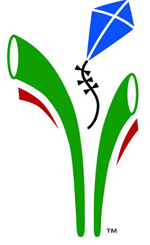OPN-375 Efficacy and Safety in Adolescents With Bilateral Nasal Polyps
| Status: | Recruiting |
|---|---|
| Healthy: | No |
| Age Range: | 12 - 17 |
| Updated: | 3/15/2019 |
| Start Date: | December 31, 2018 |
| End Date: | December 10, 2020 |
| Contact: | Amy Berman |
| Email: | amy.berman@optinose.com |
| Phone: | 267-521-0524 |
16-Week Randomized Double-Blind Placebo Controlled Parallel-Group Multicenter Study Evaluating the Efficacy and Safety of OPN-375 186 μg Twice a Day in Adolescents With Bilateral Nasal Polyps Followed With 12-Week Open-Label Treatment Phase
This is a 16-Week Randomized, Double-Blind, Placebo Controlled, Parallel-Group, Multicenter
Study Evaluating the Efficacy and Safety of OPN-375 186 μg Twice a Day (BID) in Adolescents
with Bilateral Nasal Polyps followed by a 12-Week Open-Label Treatment Phase. The total
planned number of subjects is approximately 120 adolescents (12-17 years of age) who will be
randomly assigned to receive 1 of 2 study treatments using a 2:1 ratio (OPN-375 186 μg:
Placebo). For the PK sub-study, up to 14 subjects will be enrolled to obtain 10 completers.
Study Evaluating the Efficacy and Safety of OPN-375 186 μg Twice a Day (BID) in Adolescents
with Bilateral Nasal Polyps followed by a 12-Week Open-Label Treatment Phase. The total
planned number of subjects is approximately 120 adolescents (12-17 years of age) who will be
randomly assigned to receive 1 of 2 study treatments using a 2:1 ratio (OPN-375 186 μg:
Placebo). For the PK sub-study, up to 14 subjects will be enrolled to obtain 10 completers.
The primary objective of this study is to evaluate the efficacy of intranasal administration
of OPN-375 186 μg Twice a Day (BID) versus placebo in adolescents with bilateral nasal
polyposis and nasal congestion by analyzing the reduction of nasal congestion/obstruction
symptoms at the end of Week 4 measured by the 7-day average instantaneous morning diary
symptom scores and the reduction in total polyp grade at Week 16 as determined by a nasal
polyp grading scale score measured using a 0 to 6 point severity grading scale.
of OPN-375 186 μg Twice a Day (BID) versus placebo in adolescents with bilateral nasal
polyposis and nasal congestion by analyzing the reduction of nasal congestion/obstruction
symptoms at the end of Week 4 measured by the 7-day average instantaneous morning diary
symptom scores and the reduction in total polyp grade at Week 16 as determined by a nasal
polyp grading scale score measured using a 0 to 6 point severity grading scale.
Inclusion Criteria:
1. Male or female subjects aged 12 to 17 years, inclusive, at time of Visit 1
(Screening).
2. Female subjects, if sexually active, must:
1. be practicing an effective method of birth control (e.g., prescription oral
contraceptives, contraceptive injections, contraceptive patch, intrauterine
device, double-barrier method [e.g., condoms, diaphragm, or cervical cap with
spermicidal foam, cream, or gel], or male partner sterilization) before entry and
throughout the study, or
2. be surgically sterile, (have had a hysterectomy or bilateral oophorectomy, tubal
ligation, or otherwise be incapable of pregnancy), or
3. or agree to abstinence.
3. Ability to read and speak English
4. All female subjects not documented to be infertile (e.g., infertility due to
congenital abnormality or surgical sterilization) must have a negative serum or urine
beta-human chorionic gonadotropin (β-hCG) at Visit 1 (Screening) and a negative urine
pregnancy test at the Visit 2 (Day 1/Randomization/Baseline)
5. Must have bilateral nasal polyposis with a grade of 1 to 3 in each of the nasal
cavities as determined by a nasal polyp grading scale score measured by nasoendoscopy
at Visit 1 (Screening)
6. Must report at least mild symptoms of nasal congestion/obstruction as demonstrated by
an average morning nasal congestion/obstruction score of at least 1.0 over the last 7
days of the run-in period (Subjects not meeting this inclusion criterion may be
re-screened once after at least 4 weeks.)
7. Subjects with comorbid asthma must be stable, defined as no exacerbations (e.g., no
emergency room visits, hospitalization, or oral or parenteral steroid use) within the
3 months before Visit 1 (Screening). Subjects who received inhaled corticosteroids are
required to be on no more than a moderate dosage regimen as defined by 2005 Global
Initiative for Asthma Guidelines (GINA) for 1 month before Visit 1 (Screening) and to
be expected to remain on it throughout the study. Visit 1 (Screening)
8. Must be able to cease treatment with intranasal medications including, but not limited
to, intranasal oxymetazoline or any other decongestants, intranasal antihistamines,
intranasal steroids, intranasal sodium cromolyn, nasal atropine, nasal ipratropium
bromide, as well as inhaled corticosteroids (except permitted doses listed above for
asthma) at Visit 1 (Screening). (Note: intranasal antibiotics and saline are
permissible)
9. If taking oral antihistamines, must be on a stable regimen for at least 2 weeks prior
to the Visit 1 (Screening), and agree to not change the dose of these medications
until after Visit 3 (Week 4) of the study.
10. Subject (with assistance from parent or legal guardian if needed) must demonstrate the
ability to correctly complete the daily diary during the run-in period to be eligible
for randomization.
11. Must demonstrate correct use of the demo exhalation delivery system (EDS).
12. Must be capable, in the opinion of the investigator, of providing assent and the
appropriate parent(s) or guardian must provide an informed consent to participate in
the study.
Exclusion Criteria:
1. Pregnancy or lactation
2. Has a history of cystic fibrosis
3. Have used XHANCE® (fluticasone propionate) nasal spray within the past 2 months
4. Inability to achieve bilateral nasal airflow for any reason, including nasal septum
deviation
5. Inability to examine both nasal cavities for any reason, including severe nasal septum
deviation
6. Have history of nasal septum erosion, ulceration or perforation or evidence of such
lesion on Visit 1 (Screening) nasal examination/nasoendoscopy
7. Other significant nasal pathology or abnormal anatomy
8. Has had any episode of epistaxis with frank bleeding in the 3 months before Visit 1
(Screening)
9. History of more than 5 sinus or nasal surgeries for either nasal polyps or nasal/sinus
inflammation (lifetime) Visit 1 (Screening)
10. Have had any surgery on the nasal septum
11. History of sinus or nasal surgery within 6 months before Visit 1 (Screening)
12. History of any surgical procedure that prevents the ability to accurately to diagnose
or grade polyps if the subject requires nasoendoscopy
13. Current, ongoing rhinitis medicamentosa (rebound rhinitis)
14. Have significant oral structural abnormalities (e.g., a cleft palate)
15. History of Churg-Strauss syndrome or dyskinetic ciliary syndromes
16. Purulent nasal infection (recent fever or symptoms of lethargy), acute sinusitis, or
upper respiratory tract infection within 2 weeks before Visit 1 (Screening). Potential
subjects presenting with one of these infections may be rescreened after 4 weeks
17. Have an allergy, hypersensitivity, or contraindication to corticosteroids or steroids
18. Have an allergy or hypersensitivity to any excipients in study drug
19. Exposure to any glucocorticoid treatment with potential for systemic effects (e.g.,
oral or parenteral steroids, high dose topical steroids) within 1 month before Visit 1
(Screening); except as noted in inclusion criteria for subjects with comorbid asthma
20. Currently receiving Nucala (mepolizumab), Cinquair (reslizumab), Dupixent (dupilumab),
or Omalizumab (Xolair®) (note patients should not be removed from their therapy for
the sole purpose of study participation)
21. Have nasal or oral candidiasis
22. Have taken a potent CYP3A4-inhibitor within 14 days before Visit 1 (Screening)
23. Any serious or unstable concurrent disease, psychiatric disorder, or any significant
concomitant medical condition that, in the opinion of the investigator could confound
the results of the study or could interfere with the subject's participation or
compliance in the study, or pose a specific risk to the subject due to study
participation
24. History or current diagnosis of glaucoma or ocular hypertension (intraocular pressure
>21 mmHg)
25. History of intraocular pressure elevation on any form of steroid therapy
26. Current diagnosis of the presence (in either eye) of a cataract of Grade 1 or greater
as defined on the Eye Examination Worksheet OR, less than a Grade 1 cataract with
associated visual impairment
27. A recent (within 1 year of Visit 1 (Screening) clinically significant history of drug
or alcohol use, abuse, or dependence)
28. Positive urine drug screen at Visit 1 (Screening) for stimulants, opioids, or cocaine
29. Have participated in an investigational drug clinical trial within 30 days of Visit 1
(Screening)
30. Parents, guardian or caregivers of the subject who are employees of the investigator
or study center, with direct involvement in the proposed study or other studies under
the direction of that investigator or study center, as well as family members of the
employees or the investigator
We found this trial at
17
sites
Redwood City, California 94063
Principal Investigator: Brian Lipson
Phone: 650-216-6111
Click here to add this to my saved trials
60 Crittenden Blvd # 70
Rochester, New York 14642
Rochester, New York 14642
(585) 275-2121

Principal Investigator: Li-Xing Man
Phone: 585-275-1186
University of Rochester The University of Rochester is one of the country's top-tier research universities....
Click here to add this to my saved trials
6565 S. Yale Ave.
Tulsa, Oklahoma 74136
Tulsa, Oklahoma 74136
918-392-4550

Principal Investigator: Iftikhar Hussain
Click here to add this to my saved trials
Click here to add this to my saved trials
Birmingham, Alabama 35209
Principal Investigator: Weily Soong
Phone: 205-209-4130
Click here to add this to my saved trials
Charleston, South Carolina 29425
Principal Investigator: Rodney Schlosser
Phone: 843-792-1356
Click here to add this to my saved trials
Charlotte, North Carolina 28204
Principal Investigator: Maeve O'Connor
Phone: 704-910-1402
Click here to add this to my saved trials
Click here to add this to my saved trials
Fresno, California 93720
Principal Investigator: Brent Lanier
Phone: 559-432-3303
Click here to add this to my saved trials
Louisville, Kentucky 40205
Principal Investigator: Thomas Higgins
Phone: 502-583-9425
Click here to add this to my saved trials
Morgantown, West Virginia 26506
(304) 293-0111

Principal Investigator: Hassan Ramadan
Phone: 304-598-6135
West Virginia University West Virginia University, founded in 1867, has a long and rich history...
Click here to add this to my saved trials
New Haven, Connecticut 06519
Principal Investigator: Peter Manes
Phone: 203-584-8404
Click here to add this to my saved trials
Oklahoma City, Oklahoma 73120
Principal Investigator: Martha Tarpay
Phone: 405-286-9431
Click here to add this to my saved trials
Orangeburg, South Carolina 29118
Principal Investigator: John Ansley
Phone: 803-536-5511
Click here to add this to my saved trials
Click here to add this to my saved trials
Click here to add this to my saved trials
Spokane Valley, Washington 99216
Principal Investigator: Alan Pokorny
Phone: 509-496-2782
Click here to add this to my saved trials